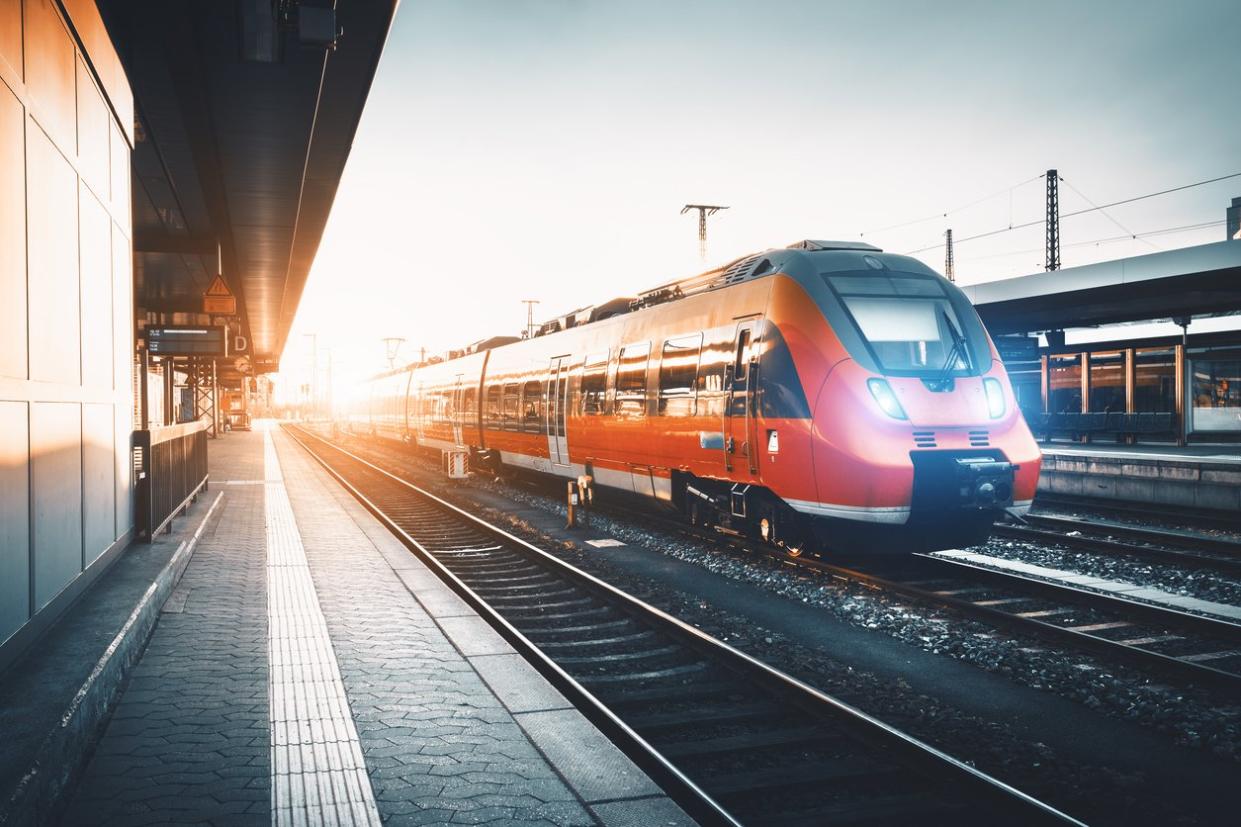UK rail companies fall short compared to rest of Europe, Great Train Comparison report shows

“If the mid-19th century was the heyday of railway development, this second decade of the 21st century is a new Golden Age for train travel” – so say Nicky Gardner and Susanne Kries in the introduction to their splendid new Great Train Comparison, a Europe-wide report created with the online rail booking service, Loco2.
This week, passengers seeking to travel from Brighton to Cambridge or from Blackpool to Bolton may not quite share the “Golden Age” sentiment. Between 50 and 90 per cent of these trains have been cancelled this week due to staff shortage (specifically, appropriately trained drivers).
Jon tweeted from Flitwick on Monday morning to say: “Two of four peak-time trains cancelled. Got on one of the two that ran, which was packed. We were all kicked off at St Albans after the driver was told to take the train empty to the depot.”
If the same thing happens at the start of the next working week, at least Jon will be able to learn from the Great Train Comparison that there is another way. Inconveniently for those hoping to get from Bedfordshire to Blackfriars, though, the evidence that railways can be well run is mostly located on the continent.
The overall first, second and third places may simply confirm your suspicion that they organise things so much better where German is the main language: Swiss Railways, Deutsche Bahn and Austrian Railways respectively.
Each collects a good sprinkling of specific awards, in a dozen categories from Best for Backpackers (Deutsche Bahn) to Best for Couples (Austrian Railways, where they still have what I will call canoodling compartments).
Yet there are some surprisingly non-Germanic winners. Best-value food goes to Czech Railways, where “Schnitzel and beer are staples, with keenly priced wine and tasty salads”. Sounds more appealing than that old British Rail staple, the Casey Jones burger.
Best business travel product is to be found not in Germany, France or Spain, with their superb high-speed networks, but in Italy: Trenitalia seems to be rising magnificently to the challenge of competition from other rail operators as well as domestic airlines.
You will also discover gems that had previously eluded me. In Switzerland, the railways will even – for a modest fee – pick up sledges, snowboards and other gear from your front door and transport it to the ski resort for you. (I assume your front door has to be in Switzerland, not Swindon.)
And bear this courtesy in mind if you have mobility issues and wish to travel to France, Belgium or the Netherlands in style: “For passengers using wheelchairs, Eurostar gives a complimentary upgrade from Standard Class to Standard Premier, where there’s more space for wheelchair users and their companion.”
Surely after yet another Eurovision Song Contest humiliation, Britain must excel at something? Indeed it does. Virgin Trains East Coast is top of the charts for People with Pets. This category provides a clean sweep for the UK, with GWR and CrossCountry second and third respectively.
We may not treat human travellers perfectly at all times, but evidently we are good at caring for animals.
“You can hop aboard most British trains with your dog or cat – or one of each,” say the editors.
To be fair to the UK, I believe if there were a category for “most creative fares” then we would win that comfortably as well. We are ahead of most nations in demand-driven pricing, as well as some pretty creative high fares: “Think of a sensible cost and then treble it,” seems to be the policy for some routes.
We beat the rest of Europe, too, for “most creative excuses”. This is the nation that brought you “the wrong kind of snow” – a phrase actually coined in 1991 by James Naughtie of Radio 4’s Today programme to describe what he had just been told by a British Rail manager about why so many trains were breaking down in winter.
Now we have a 21st century version to enjoy, courtesy of the Thameslink Twitter feed. Anyone who asked about the reason for the calamitous start to the new timetable was told it was an “operational incident”.
Dig deeper, as many did, and you learnt only: “We are not privy to the nature of the operational incident I’m afraid.”
They don’t make up excuses like that on the continent, even on social media. Or given the enigmatic unhelpfulness of the message, should that be anti-social media?


